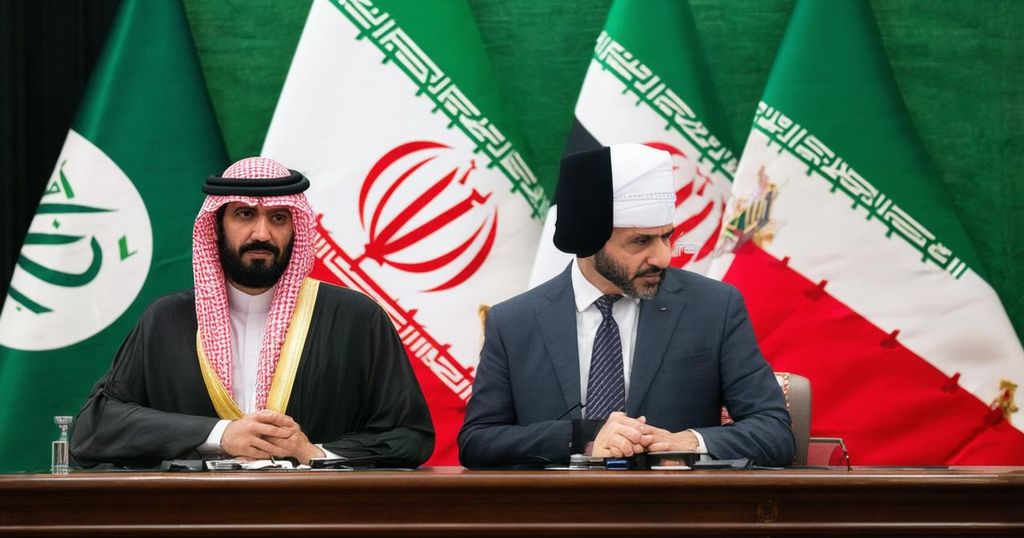Washington’s Arab Allies Increase Engagement with Iran Amid U.S. Diplomatic Stagnation

Washington’s traditional Arab allies are engaging more with Iran due to frustration with U.S. efforts to mitigate escalating Middle East tensions. Recent high-level meetings indicate a shift in relations. Arab states are prioritizing stability and avoiding direct conflict, while skepticism about U.S. security guarantees grows amidst fears of an all-out regional war.
Recent months have witnessed a notable shift among Washington’s traditional Arab allies, who are increasingly engaging with Iran amid frustrations regarding the United States’ inability to mitigate escalating tensions in the Middle East. As U.S. diplomatic efforts falter, these nations have revitalized their relations with Tehran to prevent a broader regional conflict. During a recent visit to Israel by U.S. Secretary of State Antony Blinken—his eleventh trip to the region in one year—officials aimed to capitalize on the recent killing of Hamas leader Yahya Sinwar to negotiate a ceasefire in Gaza. However, prospects for de-escalation appear dim, as Israeli actions continue unabated in Gaza and Lebanon. This diplomatic context is further complicated by Israel’s military responses to Iranian aggression, notably an October missile strike by Tehran, which was viewed as retaliation for Israel’s prior actions against Hezbollah and Hamas leaders. Arab nations, sharing Israel’s skepticism of Iran’s influence, have begun recalibrating their positions, opting for dialogue with a country with which they have long been adversarial. Significantly, recent high-level meetings between Saudi Crown Prince Mohammed bin Salman and Iranian officials, as well as meetings between Iranian foreign diplomats and leaders in Jordan, Egypt, Qatar, Oman, and Bahrain, illustrate a marked improvement in relations. Abbas Araghchi, the Iranian Foreign Minister, noted after meetings in Kuwait that assurances had been provided that regional airspace would not be utilized for attacks against Iran. Despite concerns over Iran’s regional aspirations, Gulf Arab nations are prioritizing stability and avoidance of direct conflict. Experts assert that even as they acknowledge the diminishing strength of groups like Hezbollah and Hamas, they remain apprehensive about the potential for broader violence due to Israel’s ongoing military operations. As Gulf states navigate this precarious landscape, they have grown disillusioned with U.S. assurances of security. Recent attacks on Saudi oil facilities and Abu Dhabi, attributed to Iran-backed groups, have prompted questions regarding American reliability as a protector in the region. This unease is compounded by perceptions that the U.S. is shifting its strategic focus away from the Middle East, prompting Arab leaders to reassess their diplomatic stances. While still reliant on military partnerships with the United States, as seen with the UAE hosting U.S. military personnel, the sentiment in the Gulf has evolved towards a recognition of the need for independent strategic maneuvers in dealing with Iran and other regional dynamics.
This article discusses the evolving dynamics in Middle Eastern politics, specifically focusing on the relationships between Arab nations and Iran in the context of perceived U.S. ineffectiveness in stabilizing the region. It highlights the historical rivalries and the current geopolitical landscape that influences these interactions, showcasing how Arab nations, traditionally aligned with the U.S., are reconsidering their approach to Iran amidst the backdrop of escalating conflicts, particularly following significant incidents involving Israel, Hamas, and Hezbollah.
The current landscape in the Middle East reflects a significant pivot among Arab allies of the United States as they engage with Iran to navigate a region fraught with conflict. Discontent with U.S. diplomatic efforts, particularly amidst tensions surrounding Israel’s military actions, has led these nations to seek a more neutral posture while strengthening their ties with Iran. This shift underscores a broader reevaluation of foreign policy that prioritizes stability and economic interests over historical antagonisms.
Original Source: www.cnn.com








